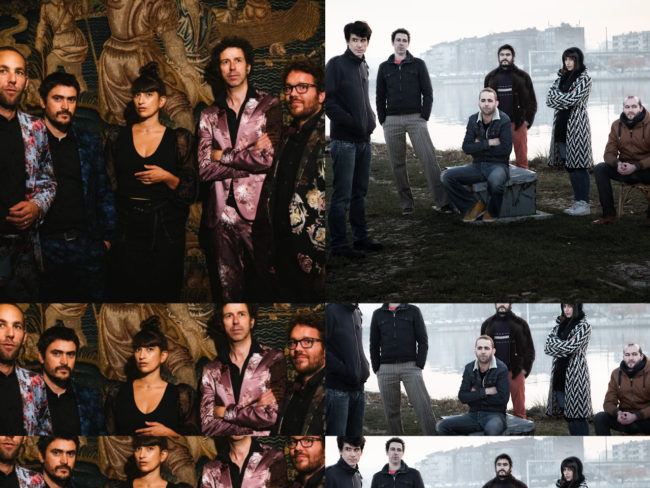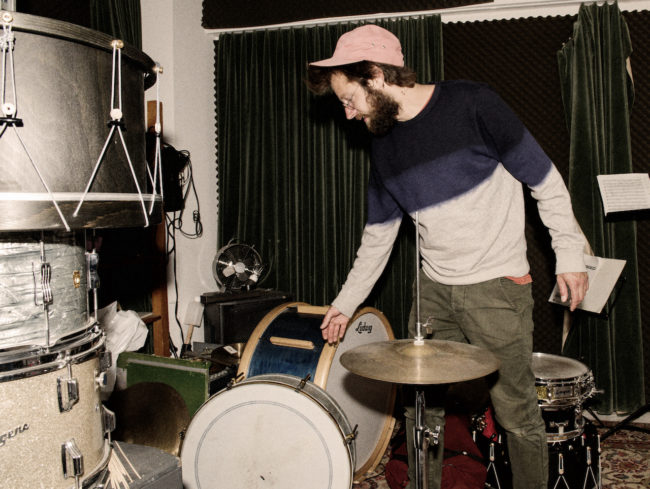Can we still talk about a french jazz scene ? #2
- by Philippe Ochem
- June 2016
Researchers, journalists or artistic directors concerned with jazz are invited to respond.
If the Europeanization of jazz continues to follow its course as the circulation of musicians and works accelerates, it is still relevant, in my opinion, to consider the French jazz scene as quite unique of its kind.
Director of the festival and “SMAC Jazz” of Strasbourg “Jazzdor”, Philippe Ochem is a key player in French and European jazz. Pianist before becoming a committed activist for creative jazz, he created Jazzdor Berlin in 2007 as a creative bridge between Germany and France and in 2016 became president of AJC (ex-AFIJMA), Association Jazzé Croisé, which brings together some sixty structures – clubs, venues and festivals – French and European. Today, he defends and shares, through all his actions, the current creation in jazz and improvised music by always being attentive to the artists who bring it to life.
If the emancipation of the American roots of jazz has been at work in France probably since the seventies, to say it quickly, with probably as a cornerstone the creation of the concept of “Folklore Imaginaire” carried by the ARFI; the emancipation, however, was later and of course progressive.
Going through the prism of the organization of musicians in collectives gives an interesting angle of approach to differentiate practices and share ideas from one country to another.
Other musicians’ collectives exist of course in Europe, but there are nearly fifty in France, of which I will only mention a few: les Vibrants Défricheurs, le Tricollectif, 1name4acrew, le Grolektif, Muzzix, Coax, Koa, Capsul, Collectif OH!…five of them are also gathered in Collision Collective.
They have in common a very broad musical culture, have mostly been trained in conservatories, ENM or associative schools (in thirty years the number of jazz classes has grown from a few to over 250 …), have crossed all influences (classical music, contemporary, ethnic music, rock, jazz, song, electronic music …). They are very erudite virtuosos who compose, improvise and have a strong sense of “doing together”, whereas the more traditional jazz environment pushes for the individualization of artistic paths.
“They are very erudite virtuosos who compose, improvise and have a strong sense of “doing together”, whereas the more traditional jazz environment pushes for the individualization of artistic paths.”
At the top of these courses, there appears a certain amount of decomplexity, a fantasy, a letting go that I feel is rarer among their young European and American colleagues. What is this due to? It’s hard to say… but despite the tense societal situation – is it more tense than elsewhere? – the condition of jazz musicians in France is always more enviable than that of most of their European colleagues – not to say Anglo-Saxon – not to mention that of American musicians.
Perhaps this is part of the answer? This “je ne sais quoi” of French, I hear it in the Grand Orchestre du Tricot, in “Polymorphie”, in the Campagnie des Musiques à Ouïr, in IXI, in so many others…
However, those whom Jean-Jacques Birgé rightly calls the “Franchisees”-see his blog dated August 23, 2013- are joined or crossed in the same waters as their young European colleagues such as Kaja Draksler, Susana Santos Sylva, Christian Lillinger, Julian Sartorius, Mette Rasmussen…: emancipation has no borders.
A “roadmap” in the guise of CODA: living the legacy with liveliness, freeing oneself from stylistic chapels, not seeking to reassure audiences while cultivating closeness to them. To follow his path as an artist in movement, mocking borders and genres while ploughing – a tribute to Joëlle Léandre – his singular furrow.
“If the Europeanization of jazz continues to follow its course as the circulation of musicians and works accelerates, it is still relevant to my mind to consider the French jazz scene as quite unique in its kind. »

